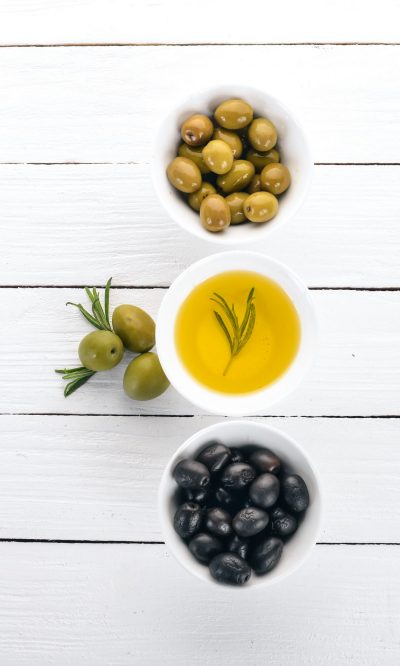Cart
Subtotal:
€0,00
Olive oil – there is hardly any other staple that stands so much for healthy Mediterranean cuisine. And rightly so! Extra virgin olive oil is not only universally applicable – whether for frying, steaming, baking, cooking, salad, fish, meat, for dessert – cold-pressed olive oil is also incredibly tasty and aromatic. Good extra virgin olive oil is also proven to be healthy and can prevent a number of diseases.
These advantages of olive oil have already been used by the ancient Greeks, who valued it not only as an everyday food, but also as a remedy and as a beauty agent, e.g. for the hair and skin. The production of olive oil in Greece goes back to thousands of years of tradition. The olive tree was and is a symbol of peace, life, fertility, strength and victory. In ancient times, cutting down an olive tree was most taboo, and is still not welcome today. Good olive oil is still valued all over the world.
We will answer these and many other questions like the following in our “World of Olive Oil”. Be curious and find the answers here!
How do you recognize a high-quality olive oil?
Where is the difference between “olive oil”, “virgin olive oil” and “extra virgin olive oil”?

Let yourself be inspired by Navalea. Because with Navalea, nothing stands in the way of enjoying Greek extra virgin olive oil and its countless possibilities!
Discover these countless possibilities, exciting olive oil recipes, healthy tips, and exciting lifestyle trends around the topic of healthy eating, Mediterranean lifestyle, and olive oil in our “Navalea Magazine”!
Navalea. 100% Natives Olivenöl Extra.
100% Koroneiki. Kaltextraktion.
Messinien, Griechenland
Inhalt: 500 ml / 16.9 fl.oz
Erste Güteklasse. Direkt aus Oliven, ausschließlich mit mechanischen Verfahren gewonnen.
So erhält Navalea seinen puren, natürlichen Geschmack und seine wertvollen Nährstoffe.
Please select all required fields